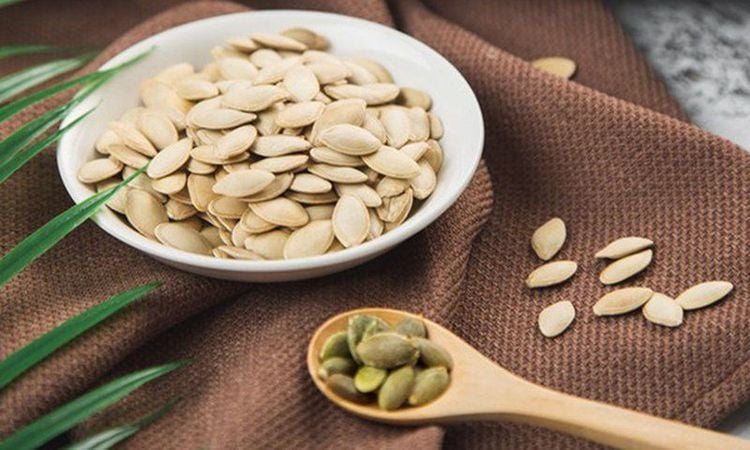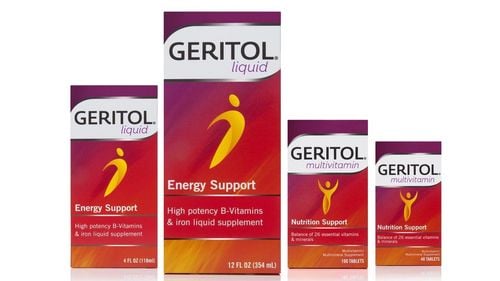This is an automatically translated article.
Omega-3 fatty acids are an essential fat, but the body cannot make it, so it must be supplemented through the diet. The researchers recommend, eating foods of plant origin such as nuts, walnuts, nuts... is a very good way to supplement omega-3 fatty acids.
1. Omega 3 Health Benefits
1.1. What are omega-3 fatty acids? Omega-3s are a group of essential fatty acids that play important roles in the body and offer a number of great health benefits. Because the body cannot produce omega-3 on its own, it is imperative to get omega-3 from your diet. The three most important omega-3 fatty acids are ALA (alpha-linolenic acid), DHA (docosahexaenoic acid) and EPA (eicosapentaenoic acid). ALA is mainly found in plants, while DHA and EPA are mostly found only in foods of animal origin and algae. Common foods that are high in omega-3 fatty acids include: fatty fish, oily fish, flaxseeds, chia seeds, flaxseed oil, and walnuts. For people who don't eat a lot of these foods, an omega-3 supplement, such as fish oil or algae oil, is often recommended.
1.2. Classification of Omega-3 Fatty Acids There are three main types of omega-3 fatty acids: ALA, DHA and EPA.
ALA Alpha-linolenic acid (ALA) is the most common omega-3 fatty acid in the human diet. The body primarily uses ALA as an energy source for vital activities, but it can also be converted to the biologically active forms of omega-3s, EPA and DHA. However, this transition is often inefficient. Studies have demonstrated that only a small percentage of ALA is converted to active forms. ALA is found in plant-based foods such as flaxseeds, flaxseed oil, canola oil, chia seeds, walnuts, hemp seeds, and soybeans. EPA Eicosapentaenoic acid (EPA) is mainly found in animal products, such as fatty fish and fish oils. However, some microalgae also contain EPA. EPA supports a part of the activities that take place in each of us. In addition, a small part of it can be converted to DHA. DHA Docosahexaenoic acid (DHA) is an important structural component of the brain, retina of the eye, and many other body parts. Like EPA, DHA occurs mainly in foods of animal origin such as fatty fish and fish oils. Meat, eggs, and dairy from grass-fed animals also tend to contain significant amounts of DHA. Vegetarians and vegans often lack DHA, so they are recommended to take microalgae supplements to ensure they get enough omega-3s each day.

DHA Axit docosahexaenoic xuất hiện nhiều trong động vật và dầu cá
1.3. Benefits of Omega-3 Fatty Acids Omega-3 fatty acids are an extremely important fatty acid for a person's overall health. Omega-3 fatty acids play an important role in maintaining a healthy heart. In addition, omega-3 is also beneficial for the brain as well as the mental health of each person. Studies have shown that omega-3 fatty acids can help manage symptoms of depression as well as chronic stress.
In addition to the effects mentioned above, omega-3 also has a number of other notable health benefits such as helping to promote eye health, well control the risk of cardiovascular disease, reduce inflammation, fight infection, relieve menstrual pain, bring a healthy skin and slow down the aging of the joint system.
Omega-3 fatty acids, especially DHA, are essential for brain and retina health. It is especially important for pregnant and lactating women to get enough DHA, as it can affect the health and intelligence of the baby. In addition, getting enough omega-3s can provide many health benefits for adults. This is especially true of longer chain forms such as EPA and DHA. Although the evidence is not clear, studies show that omega-3 fatty acids can protect against many diseases, including breast cancer, depression and many inflammatory diseases. difference.
In nature, there are a number of foods rich in omega-3 fatty acids have been found, but they are mostly of animal origin, not suitable for vegetarians or those pursuing a diet healthy diet. Therefore, finding an additional source of omega-3 fatty acids from plants is very important for these subjects. Luckily, some nuts are rich in omega-3s, and that can be the optimal choice for those who are vegan or pursuing a healthy diet of plant-based foods.
2. Nuts rich in omega 3
2.1. Walnuts Walnuts contain many essential nutrients for the body, in addition to being one of the best sources of plant-based omega-3 fatty acids. Walnuts are also rich in antioxidants, which help neutralize free radicals thereby slowing down the aging process as well as helping women maintain a soft and healthy skin.
Some other notable health benefits of walnuts include: reducing inflammation, lowering blood pressure, maintaining a healthy body weight, controlling the risk of type 2 diabetes and being good for your health. brain health.
2.2. Flaxseeds Flaxseed contains many essential nutrients that can be found almost exclusively in plant-based foods, so flaxseeds are useful in providing these nutrients for vegetarians or those in need. Pursue a healthy diet based on plant-based foods. This nut is also high in protein and fiber that can help reduce cravings, thereby supporting weight loss very well.
2.3. Pumpkin Seeds Many people don't seem to know about the amazing health benefits that pumpkin seeds can bring. Pumpkin seeds are rich in protein, iron, zinc, magnesium, calcium, folate, beta-carotene...
In particular, pumpkin seeds are also a source of beneficial fatty acids, typically omega-3 fatty acids. and omega-6 fatty acids (helps the body absorb omega-3 fatty acids). In addition, the taste of pumpkin seeds is also very attractive and can be used a lot in holidays and Tet.

Hạt bí ngô là nguồn cung cấp các axit béo có lợi trong đó có Omega 3
2.4. Peanuts Peanuts are one of the nuts that appear a lot in weight loss diets. They also have a very respectable nutritional profile, providing plant-based protein, fiber, omega-3s and several other essential vitamins and minerals. Peanuts are also one of the favorite snacks of people all over the world. If consumed in moderation, peanuts can also help control weight very well.
2.5. Hazelnuts Protein, fiber, vitamin E, magnesium, thiamin, copper, vitamin B6, folate, potassium and zinc are some of the vitamins and minerals that hazelnuts can provide. Hazelnuts have also been shown to contain high amounts of omega-3, omega-6 and omega-9 fatty acids. Therefore, incorporating hazelnuts in a vegetarian or healthy diet rich in plant-based foods is not a bad idea.
As we can see, omega-3 fatty acids can be easily obtained from whole foods. Omega-3s offer many health benefits, such as protecting against risk factors for cardiovascular disease, supporting brain development, and fighting inflammatory responses. One difficulty in getting enough omega-3 in people who are vegetarian or stick to a healthy diet is that the main source of omega-3 comes from animals. Fortunately, however, some plants, especially nuts, also contain a large amount of omega-3 fatty acids.
Therefore, to ensure your body receives the necessary amount of omega-3, you should Consider adding nuts with omega-3 content in addition to other foods. However, if you are in the process of being treated for a health problem, or have a medical condition, you can discuss further with a specialist to get a healthy, suitable diet. with current health status.
Please dial HOTLINE for more information or register for an appointment HERE. Download MyVinmec app to make appointments faster and to manage your bookings easily.
Reference source: healthline.com - mayoclinic.org - ndtv.com












